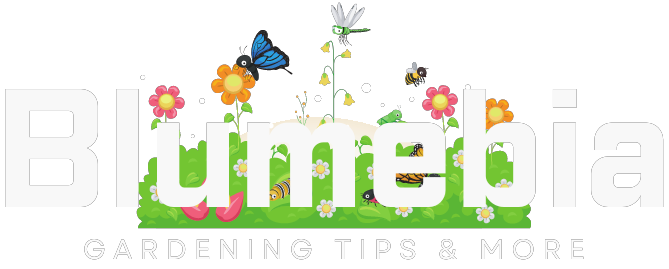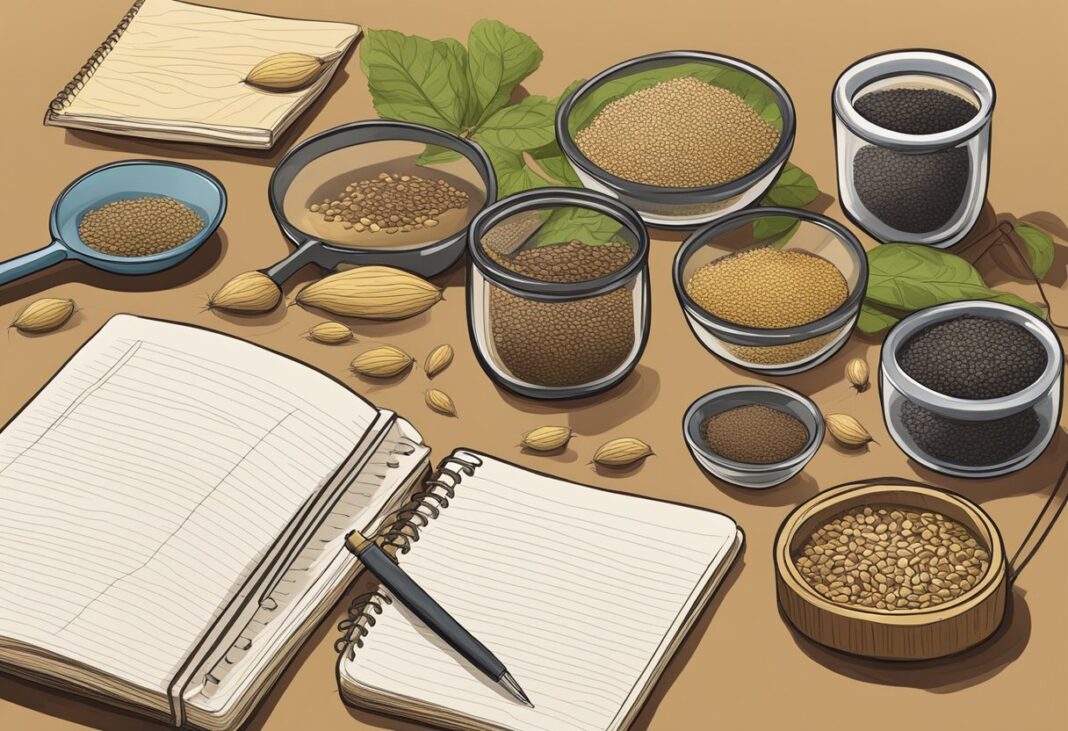If you’re a gardener looking to grow a healthy and sustainable garden, choosing the right seeds is an essential part of the process. Organic seeds are a great choice for those who want to avoid harmful chemicals and promote biodiversity in their gardens. In this guide, we’ll provide you with a comprehensive overview of how to select and source organic seeds for your garden.
When it comes to selecting organic seeds, there are several factors to consider. First and foremost, you’ll want to ensure that the seeds are certified organic and non-GMO. This will help ensure that the seeds you’re planting are free from harmful chemicals and have not been genetically modified in any way. Additionally, you’ll want to consider the specific needs of your garden and choose seeds that are well-suited to your climate and growing conditions.
Sourcing organic seeds can also be a challenge, as not all seed companies offer organic options. However, there are many reputable seed companies that specialize in organic seeds and offer a wide variety of options for gardeners. By following a few simple guidelines and doing your research, you can find the best organic seeds for your garden and enjoy a bountiful harvest all season long.
Understanding Organic Seeds
Definition and Benefits
Organic seeds are seeds that are produced without the use of synthetic pesticides, herbicides, or genetically modified organisms (GMOs). These seeds are grown using organic farming practices that promote soil health and biodiversity. Organic seeds are non-GMO and are not treated with chemical coatings or preservatives, making them a healthier choice for both the environment and the consumer.
Choosing organic seeds has many benefits. Organic seeds are more resilient and have a higher chance of survival since they are grown in healthier soil and are not exposed to harmful chemicals. They also produce healthier and more nutritious crops, which is especially important for those who grow food for their families. Additionally, organic seeds help to promote biodiversity and support the health of pollinators and other beneficial insects.
Organic vs. Non-Organic Seeds
Organic seeds differ from non-organic seeds in several ways. Non-organic seeds may be treated with fungicides or insecticides, which can be harmful to the environment and human health. They may also be genetically modified to produce specific traits, such as resistance to pests or herbicides. Non-organic seeds may also be coated with chemical preservatives to extend their shelf life.
When choosing between organic and non-organic seeds, it is important to consider the potential risks and benefits of each. While non-organic seeds may be cheaper and more readily available, they may also pose a risk to the environment and human health. Organic seeds, on the other hand, are grown using sustainable practices that promote soil health and biodiversity, making them a healthier and more environmentally friendly choice.
By choosing organic seeds, you can help to promote a healthier environment and support sustainable agriculture practices. With their numerous benefits, organic seeds are a great choice for any gardener looking to grow healthy and nutritious crops.
Selecting the Right Organic Seeds
When it comes to selecting organic seeds for your garden, there are a few important factors to consider. In this section, we’ll take a closer look at the different seed varieties and their purposes, climate and soil considerations, and disease and pest resistance.
Seed Varieties and Their Purposes
Organic seeds come in a variety of types, including heirloom, open-pollinated, and hybrid. Heirloom seeds are passed down from generation to generation and are known for their unique characteristics and flavors. Open-pollinated seeds are pollinated naturally, while hybrid seeds are a cross between two different varieties.
When selecting organic seeds, it’s important to consider the purpose of your garden. Are you growing vegetables for personal consumption or for sale at a farmers’ market? Do you want to grow plants for their ornamental value or for medicinal purposes? Understanding the purpose of your garden will help you select the right seed varieties.
Climate and Soil Considerations
Another important factor to consider when selecting organic seeds is the climate and soil conditions of your garden. Different seed varieties thrive in different climates and soil types. Some plants prefer warm, dry climates, while others thrive in cool, moist environments.
Before selecting your organic seeds, it’s important to research the climate and soil conditions of your area. This will help you choose seed varieties that are well-suited to your garden’s environment.
Disease and Pest Resistance
Finally, it’s important to consider disease and pest resistance when selecting organic seeds. Some seed varieties are naturally resistant to certain diseases and pests, which can help reduce the need for chemical pesticides and fungicides.
When selecting organic seeds, look for varieties that are known for their disease and pest resistance. This will help ensure a healthy and productive garden without the need for harmful chemicals.
By considering these factors when selecting organic seeds for your garden, you can ensure a successful and sustainable growing season.
Sourcing Organic Seeds
When it comes to sourcing organic seeds, there are a few things to keep in mind. You want to make sure you are getting high-quality seeds that are free from harmful chemicals and genetic modifications. Here are some tips for finding the best sources for organic seeds:
Trusted Suppliers and Brands
One way to ensure you are getting high-quality organic seeds is to buy from trusted suppliers and brands. Look for companies that have a good reputation for selling organic seeds and have been in business for a while. Some well-known organic seed companies include Baker Creek, Seed Savers Exchange, and Johnny’s Selected Seeds. These companies offer a wide variety of organic seeds, including heirloom and rare varieties.
Local vs. Online Suppliers
When it comes to buying organic seeds, you have the option of buying from local or online suppliers. Local suppliers can be a great option if you want to support small businesses in your area and have the opportunity to talk to the growers in person. However, if you are looking for a wider variety of seeds, online suppliers may be your best bet. Online suppliers often have a larger selection of seeds and can ship them directly to your door.
Certifications to Look For
When buying organic seeds, it’s important to look for certain certifications to ensure that the seeds are truly organic. The USDA Organic certification is a good place to start. This certification ensures that the seeds are grown and processed without the use of synthetic pesticides, fertilizers, or genetically modified organisms (GMOs). Another certification to look for is the Non-GMO Project Verified seal. This certification ensures that the seeds are free from GMOs.
Overall, sourcing organic seeds can be a bit of a challenge, but with a little research, you can find high-quality seeds that will help you grow a healthy and thriving garden.
Frequently Asked Questions
What are the benefits of using organic seeds in my garden?
Using organic seeds in your garden has many benefits. Organic seeds are grown without the use of synthetic pesticides and fertilizers, which means they are better for the environment and for your health. Organic seeds are also more likely to be adapted to local growing conditions, which means they may be more resistant to pests and diseases. Additionally, using organic seeds supports the organic farming movement and helps to promote sustainable agriculture practices.
How can I verify the authenticity of organic seeds?
To verify the authenticity of organic seeds, look for third-party certifications such as the USDA Organic label or the Certified Naturally Grown label. These labels indicate that the seeds have been grown and processed according to strict organic standards. You can also purchase seeds from reputable organic seed companies or from farmers who are certified organic.
Are there specific certifications to look for when purchasing organic seeds?
Yes, there are specific certifications to look for when purchasing organic seeds. The USDA Organic label and the Certified Naturally Grown label are two of the most common certifications for organic seeds. Other certifications include the Organic Materials Review Institute (OMRI) and the Demeter Biodynamic certification.
What should I consider when choosing organic seeds for different climates?
When choosing organic seeds for different climates, consider the specific growing conditions of your region. Look for seeds that are adapted to your climate and soil type. You may also want to consider the length of your growing season and the average temperature and rainfall in your area. Some organic seed companies offer seeds that are specifically bred for certain climates, so be sure to do your research before making a purchase.
Can I save seeds from organic plants and still maintain organic status?
Yes, you can save seeds from organic plants and still maintain organic status. However, it is important to ensure that the plants were grown using organic methods and that the seeds have not been contaminated by non-organic sources. To maintain organic status, you should also keep detailed records of your seed-saving practices.
How does the cost of organic seeds compare to non-organic options?
The cost of organic seeds may be slightly higher than non-organic options due to the additional labor and resources required to grow and process them. However, the long-term benefits of using organic seeds, such as improved soil health and reduced environmental impact, may outweigh the initial cost difference. Additionally, many organic seed companies offer bulk discounts and other promotions to help make their seeds more affordable.



